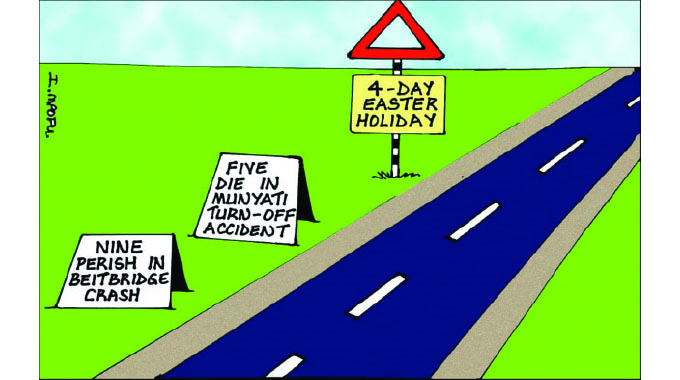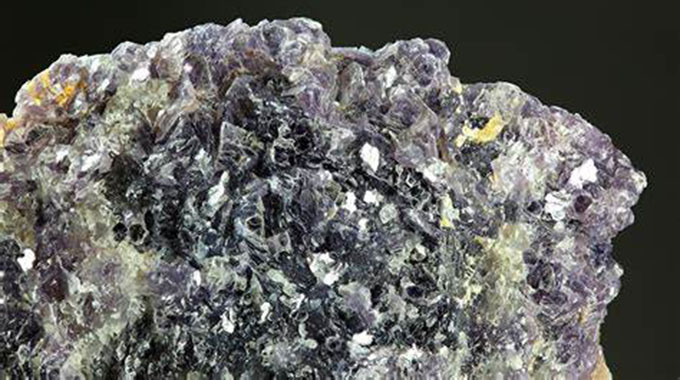Potato seed imports not banned

Edgar Vhera-Agriculture Specialist Writer
THE Government has dismissed speculation that the current price fluctuations for table potatoes were a result of low production due to the ban on potato seed imports from South Africa, saying dynamics in the production process were the likeliest cause.
This follows growing concerns among some stakeholders that declining potato supplies on the market were due to the ban on seed potato imports from South Africa following the recent outbreak of potato virus.
Seed Services Institute head in the Department of Research and Specialist Services, Mr Edmore Mtetwa said the country had not imposed a ban on potato seed imports from South Africa.
“The National Plant Protection Organisation of South Africa (NPPOZA) notified the International Plant Protection Convention (IPPC) on December 21 last year of the detection of pepper ringspot virus (PepRSV) in South Africa. It then became necessary to urgently conduct a re-evaluation and risk assessment of all seed potato sources in South Africa,” he said.
The Government conducted an evaluation of the response measures put in place by South African authorities to ensure zero tolerance to PepRSV in their seed potato production and certification scheme, which was done in collaboration with the seed certification authority, the Potato Certification Services (PCS) of South Africa.
The measures implemented to prevent entry and any further spread of PepRSV in seed potato production units were found to be satisfactory.
Mr Mtetwa said only those seed houses that were found to be operating in full compliance with the measures put in place to ensure a zero tolerance to PepRSV under the South African Seed Potato Certification Scheme administered by the Potato Certification Service were approved for any seed potatoes to be imported from South Africa.
“Due-diligence risk assessments to confirm that these are clean and safe sources were done. The importing of seed is a stopgap measure to augment locally produced seed in order to meet the immediate seed supply requirements,” he added.
As such, there will not be any seed shortages for potato farmers, while local seed houses are now implementing a localisation plan for seed potato production to ensure self-sufficiency in the near future, he said.
Meanwhile, potato supplies of on local markets remain depressed within the 50 percent mark of normal as a result of a slump in production with high production costs, El Nino and seed shortage cited as some of the push factors.
Giving updates on fresh produce trading on the main market yesterday, Knowledge Transfer Africa (KTA) chief executive officer Dr Charles Dhewa said the trading on the Mbare market had remained suppressed due to low production.
“The supply of potatoes on the local markets has remained around 300 tonne per day down from the normal 500. The main sources of the crop are Mashonaland and Manicaland provinces. Prices have remained on the high side as a result of low production this year due to limited rainfall,” he said.
Zimbabwe Seed Potatoes Companies Associations (ZSPCA) chairman, Mr Peter Steyl said the current high prices for potato on the fresh market were a result of the delayed plantings for summer due to delayed access to financial resources.
“We are happy that Government has announced the removal of value added tax (VAT) on seed potato imports and we await its implementation. This will ensure that seed remains affordable and accessible. The seed industry commits to uninterrupted seed supplies to farmers,” the ZSPCA chair said.
Government’s call for import substitution through local production has resulted in 100 percent increase in home-grown table potatoes, as farmers collaborate with agro-processors through off take arrangements for enhanced production, market access and sustainability.
Government declared potato a strategic crop to enhance food security at household and national level and instituted a number of measures, chief among them, a ban on table potato imports since 2010.
This was a deliberate measure to protect the local potato farmers from unfair competition from cheap table potato imports from neighbouring countries.
Government has allowed supervised importation of certified potato seed by seed houses to complement local seed production.








Comments